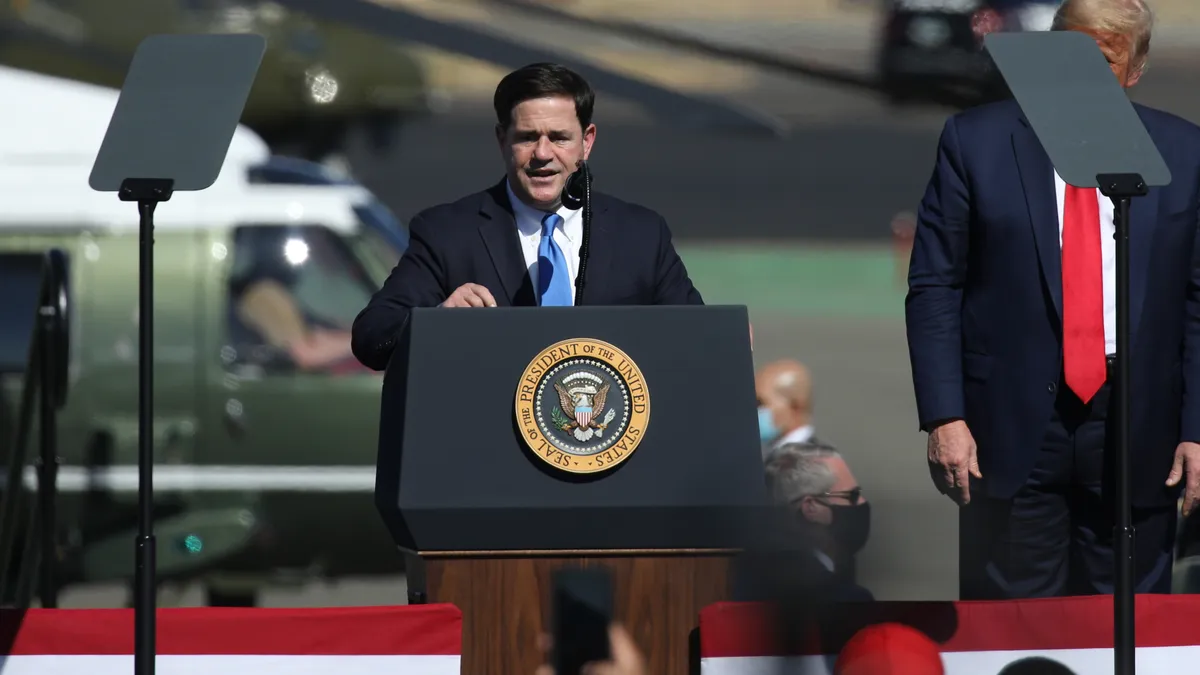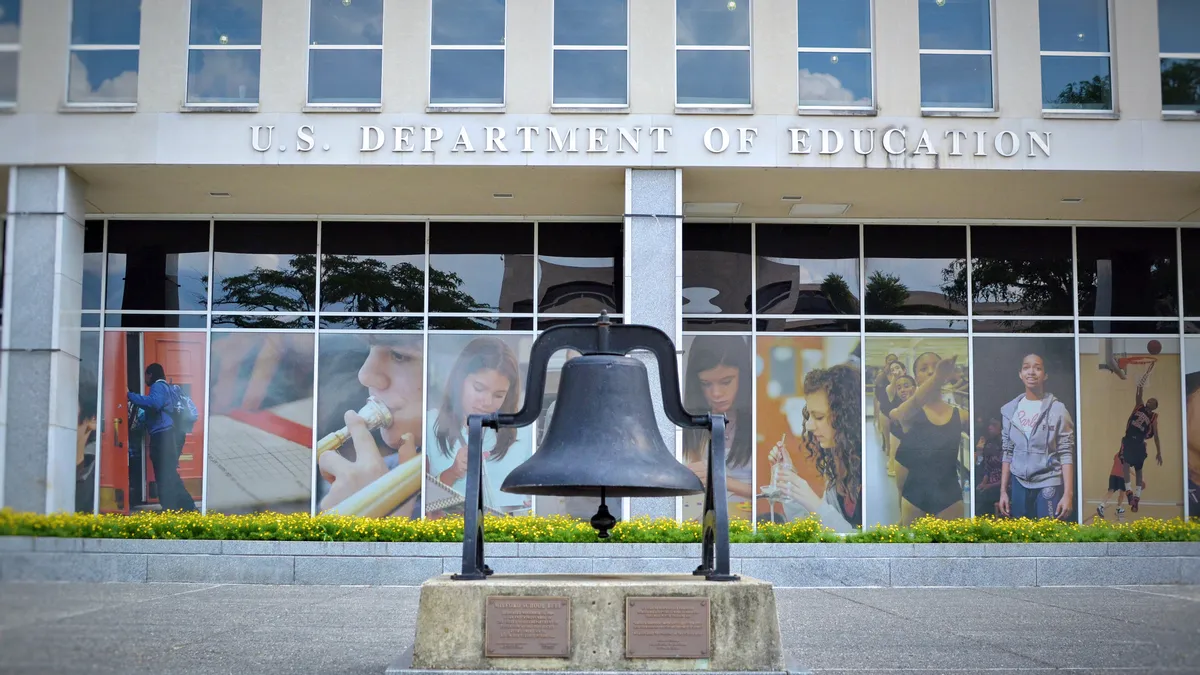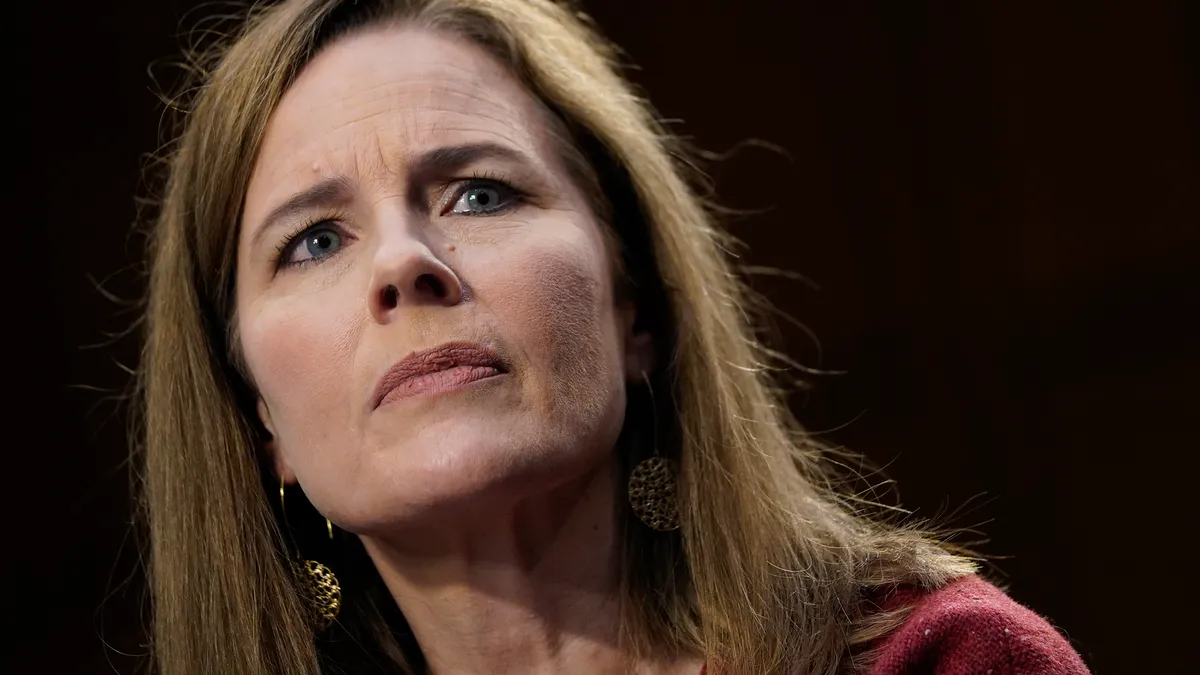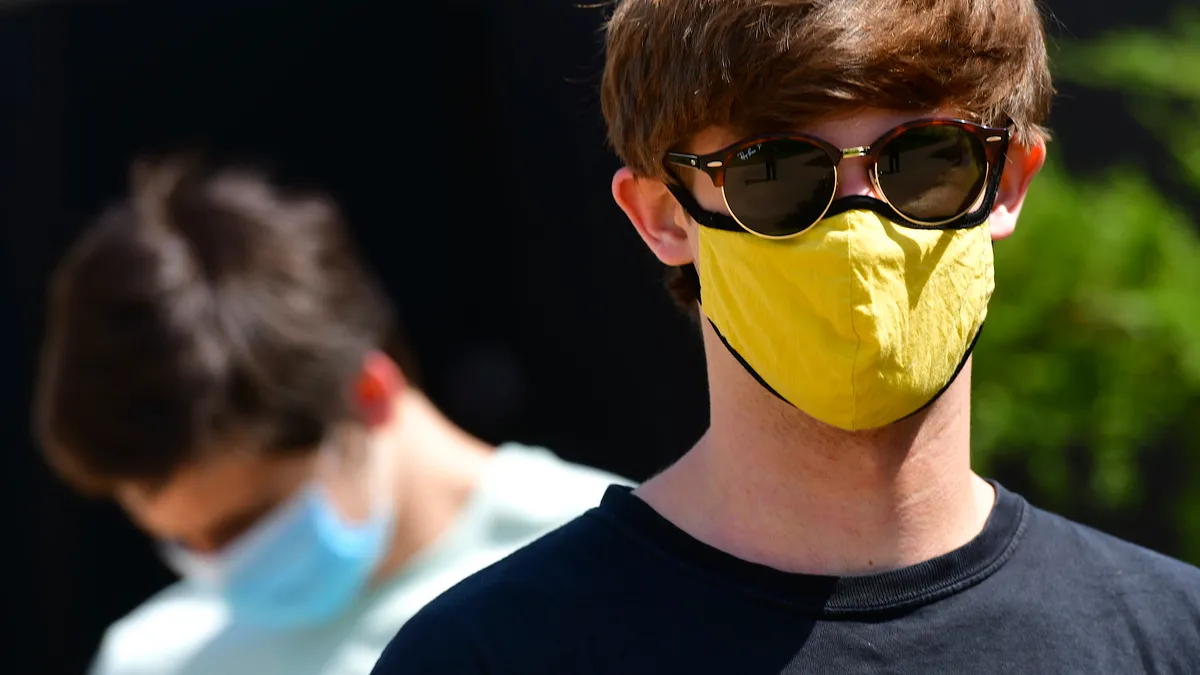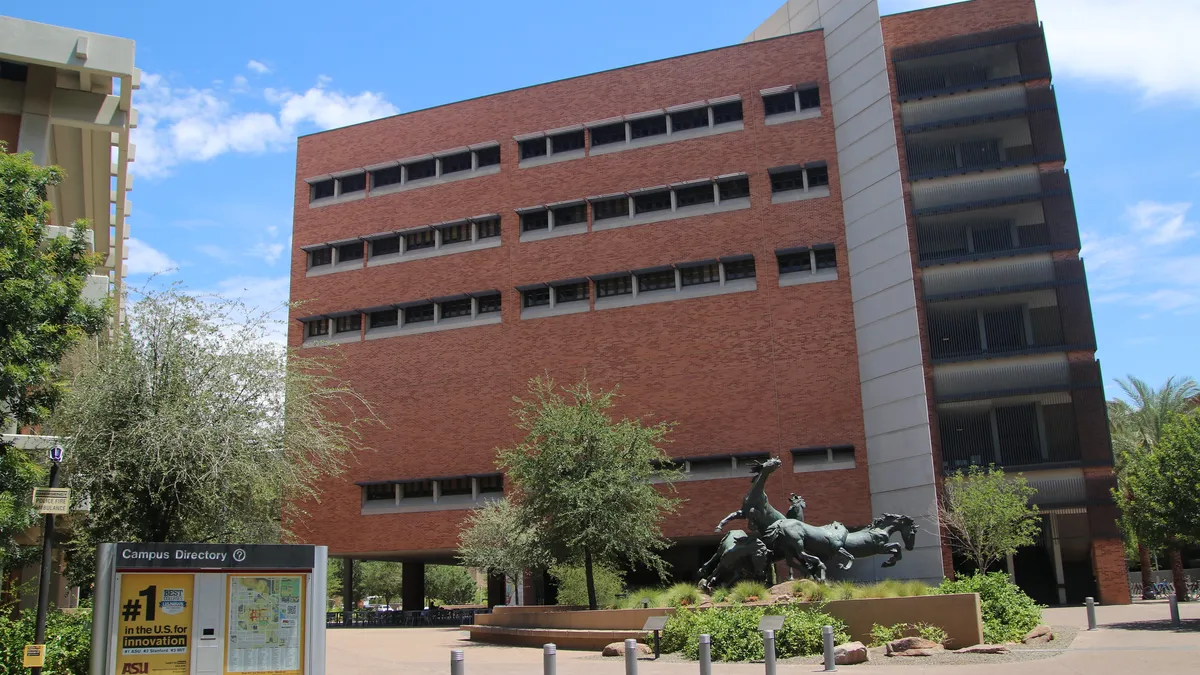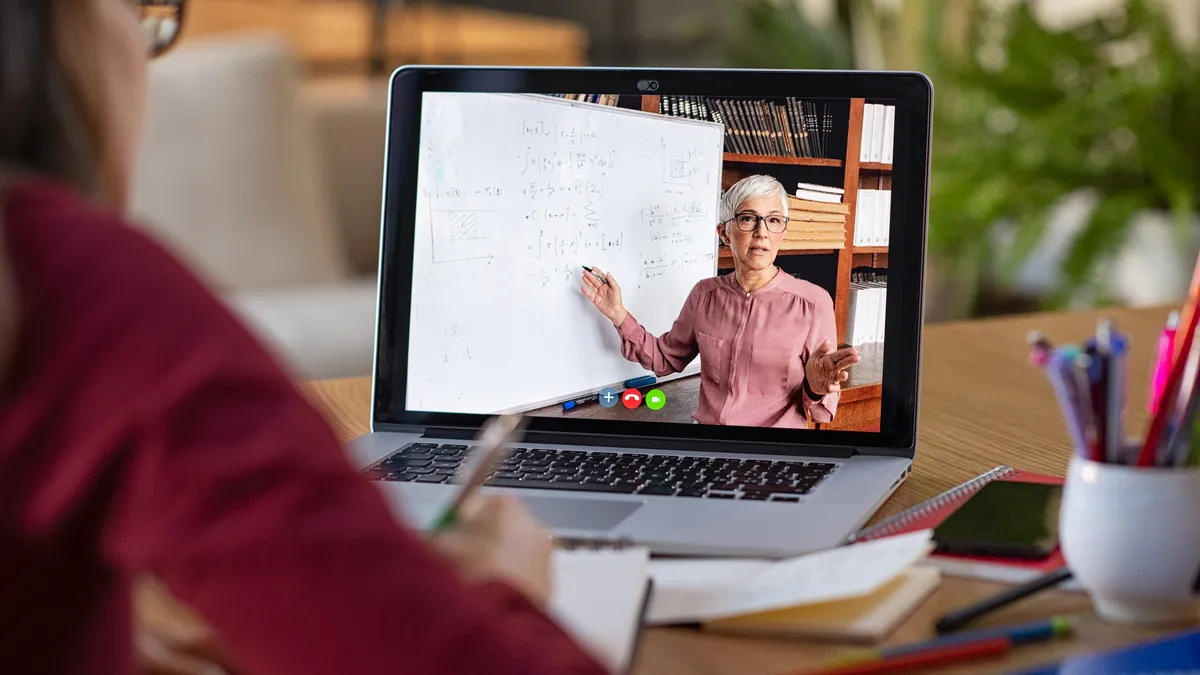The wide availability of coronavirus vaccines led colleges to prepare for a more normal fall term, including by loosening mask mandates. But new guidelines from the Centers for Disease Control and Prevention this week already unraveled some of those plans.
In a break from its previous guidance, the CDC said people who've been vaccinated should wear masks while indoors in areas of the country where there is "substantial or high" coronavirus transmission.
The recent spread of the highly contagious delta variant, which makes up most new coronavirus infections in the U.S., triggered the change. While the vast majority of coronavirus-related deaths are among the unvaccinated, evidence indicates vaccinated people infected with the delta variant can spread the virus to others, according to the CDC.
The CDC's change will majorly impact colleges. Two-thirds of counties have levels of virus transmission that warrant indoor mask-wearing, according to the agency.
In turn, some colleges have reimposed or implemented mask mandates for the fall. One of those institutions is Duke University, in North Carolina, which will require all students, employees and campus visitors to wear masks starting Friday in accordance with the new CDC guidance. And the Nevada System of Higher Education is instituting a similar requirement for the state's public colleges.
Yet not all colleges can or will add indoor mask mandates. Local transmission rates are too low for CDC guidelines to come into play for some schools, while others have their hands tied by state policies.
Colleges will have to continue to be nimble and creative to navigate an evolving public health crisis while following these laws.
"This once again will cause schools to have to look at and evaluate what they had originally planned and tweak those plans accordingly," said Anita Barkin, co-chair of the American College Health Association's COVID-19 task force.
Reevaluating initial plans
In the spring of 2021, nearly every college had a mask mandate, said Chris Marsicano, founding director of the College Crisis Initiative at Davidson College, which is tracking institutional responses to the pandemic. Up until recently, he added, it seemed colleges would loosen mask policies for vaccinated students for the upcoming term.
Because colleges had similar mask policies in the spring, the C2i team hadn't planned on tracking them for the fall. "Over the last few days, it became pretty clear that we need to track it," Marsicano said.
Indeed, institutional responses to the CDC guidance have been varied so far. While some colleges are implementing mask mandates, others are using the guidance as license to relax their policies.
Indiana University of Pennsylvania is no longer requiring vaccinated students to wear masks indoors because coronavirus infections are stable in its county, a university spokesperson told the Pittsburgh Post-Gazette. Yet the school is going against CDC guidance by also allowing unvaccinated students to go mask free indoors. Other schools were ahead of the curve. Tulane University, in Louisiana, added an indoor mask mandate only days before the CDC released its new guidance.
However, some public health experts are critical of the CDC's new guidelines. Leana Wen, a health policy and management professor at George Washington University, called the update confusing.
"My interpretation of the data that we have thus far is that vaccinated (people) around other people who are fully vaccinated is still very safe," Wen said. She stressed that the vast majority of infections are spread by people who haven't gotten the shots.
Wen recommends that colleges without vaccine mandates test unvaccinated people twice weekly. "In that circumstance, I do not believe that masks are needed," she said. If schools don't have a testing or vaccine mandate, she added, they should require masks in indoor areas where vaccinated and unvaccinated people are mixing.
'A marketing issue'
While some colleges have the freedom to require face coverings, others have their hands tied by state regulations barring mask mandates. Texas Gov. Greg Abbott, a Republican, issued an executive order in May prohibiting government entities, including public colleges, from requiring masks. Arkansas lawmakers passed a similar law that took effect this week.
A University of Texas at Austin spokesperson said they couldn't immediately answer Higher Ed Dive's emailed questions about the institution's plans to encourage mask-wearing and whether university officials expect the CDC guidance to change their policies. "The landscape is shifting and leadership is being nimble and assessing the ever changing situation," the spokesperson said in an email, adding the school should be able to answer those questions "in the coming days."
Texas A&M University and the University of Arkansas did not answer Higher Ed Dive's questions by publication time Thursday.
However, colleges under restrictive laws or executive orders still have ways to encourage mask-wearing. Barkin recommended they provide information to the campus community about the advantages of face coverings, as well as use student leaders and other trusted campus voices to promote them.
"It's a marketing issue at that point," she said.








